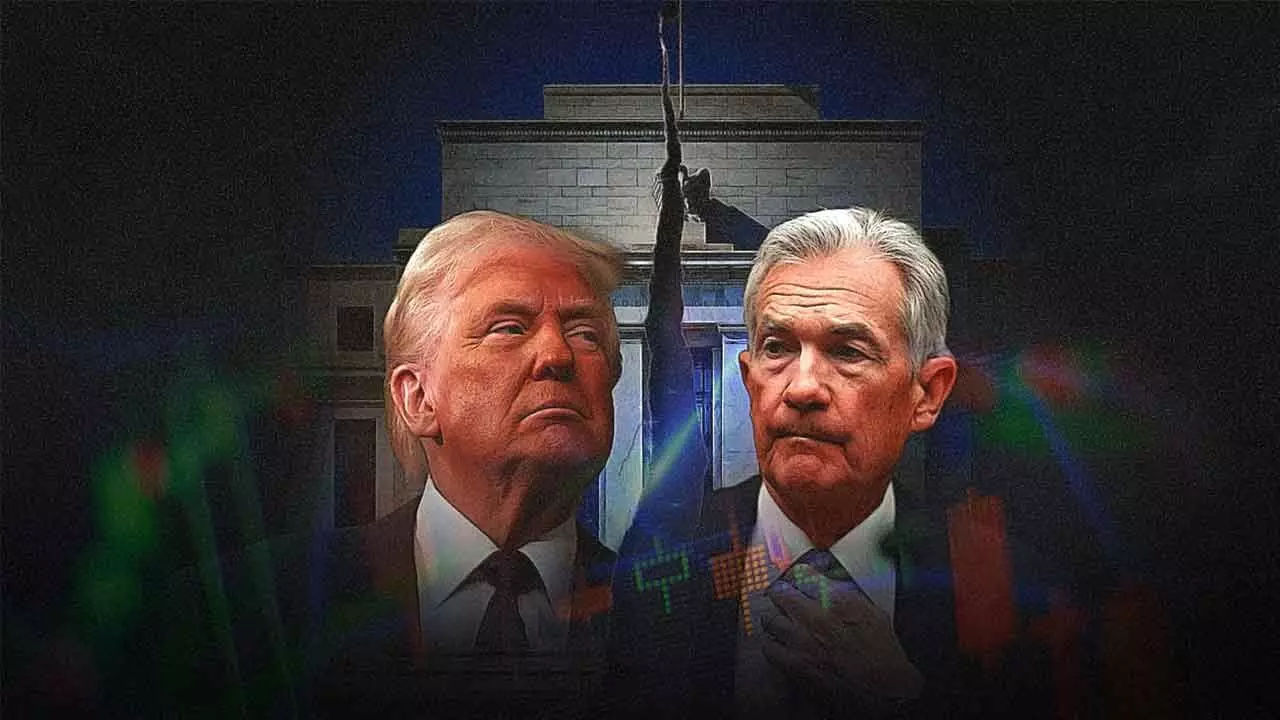Trump's Red Line: Only Rate-Cut Backers Welcome at the Fed
Donald Trump declares he'll only appoint a Federal Reserve chief committed to aggressive interest rate cuts, signaling a dramatic shift in central bank independence. Discover what this means for the Fed's future and the U.S. economy.
Trump's Red Line: Only Rate-Cut Backers Welcome at the Fed

President Donald Trump has drawn a clear line in the sand regarding future leadership at the Federal Reserve: only candidates who champion significant interest rate cuts will be considered for the top job. This marks his most explicit demand yet, underscoring his desire for the central bank to align with his economic agenda.
"If I think somebody's going to keep the rates where they are or whatever, I'm not going to put them in," Trump stated emphatically. "I'm going to put somebody that wants to cut rates. There are a lot of them out there."
While past presidents have voiced frustrations over the Fed's interest rate decisions, Trump has taken an unprecedented stance, openly setting a policy litmus test for prospective central bank chiefs. He has consistently called for rates to be slashed to a mere 1%, a stark contrast to the current Fed benchmark range of 4.25% to 4.50%.
Trump's ire has frequently been directed at current Fed Chair Jerome Powell, whom he has sharply criticized since returning to the White House in January for not lowering borrowing costs. On Friday, his frustration boiled over once more. "I'd love him to resign if he wanted to, he's done a lousy job," Trump declared from the White House, even going so far as to label Powell "stupid."
The Federal Reserve had aggressively raised rates following the pandemic to combat the steepest inflation surge since the 1970s and 80s. Although they eased slightly in the latter half of last year, no further cuts have occurred since Trump's return to office. This cautious approach largely stems from concerns among Powell and many policymakers that Trump's tariff policies could reignite inflation. They prefer to observe how these factors develop before implementing further rate reductions. While Fed officials have indicated a modest half-percentage point of cuts later this year, it's a far cry from the drastic reductions Trump is demanding.
Trump's latest verbal attack on Powell comes after he appears to have largely abandoned threats to fire the Fed leader. A recent Supreme Court opinion reinforced the long-held view that presidents cannot dismiss top Fed officials over policy disagreements. This protection is widely seen as crucial for safeguarding the Fed's independence from political interference, a cornerstone of its credibility as the world's most influential central bank.
Consequently, Trump has shifted his focus to finding a successor for Powell, whose term as chair concludes in May 2026. He's recently mentioned having three or four potential candidates in mind and anticipates making a decision soon. Historically, Fed chair appointments are typically announced three to four months before a vacancy. With about ten months remaining in Powell's tenure, an early nomination by Trump could be an attempt to undermine Powell's authority by introducing a "shadow chair" who advocates for a different policy direction.
However, Treasury Secretary Scott Bessent, a name often floated as a potential replacement for Powell, downplayed the "shadow chair" concept. "I don't think anyone's necessarily talking about that," he told CNBC. Bessent pointed out that only one seat on the Fed Board of Governors is scheduled to open within the year, specifically Governor Adriana Kugler's term, which expires in early 2026. While Powell's term as chair ends next May, he isn't required to leave the Fed entirely until his board seat expires in 2028. This makes Kugler's upcoming departure the first opportunity for a Trump appointment.
"So there is a chance that the person who is going to become the chair could be appointed in January, which would probably mean an October, November nomination," Bessent elaborated. When asked about reports that he's among the potential candidates, Bessent responded, "I'll do what the president wants, but I think I have the best job in Washington."
Other names reportedly under consideration for the position include White House economic adviser Kevin Hassett, former Fed Governor Kevin Warsh, and current Governor Christopher Waller. Notably, Waller, appointed by Trump during his first term, recently indicated his openness to cutting interest rates as early as the Fed's next meeting at the end of July.

